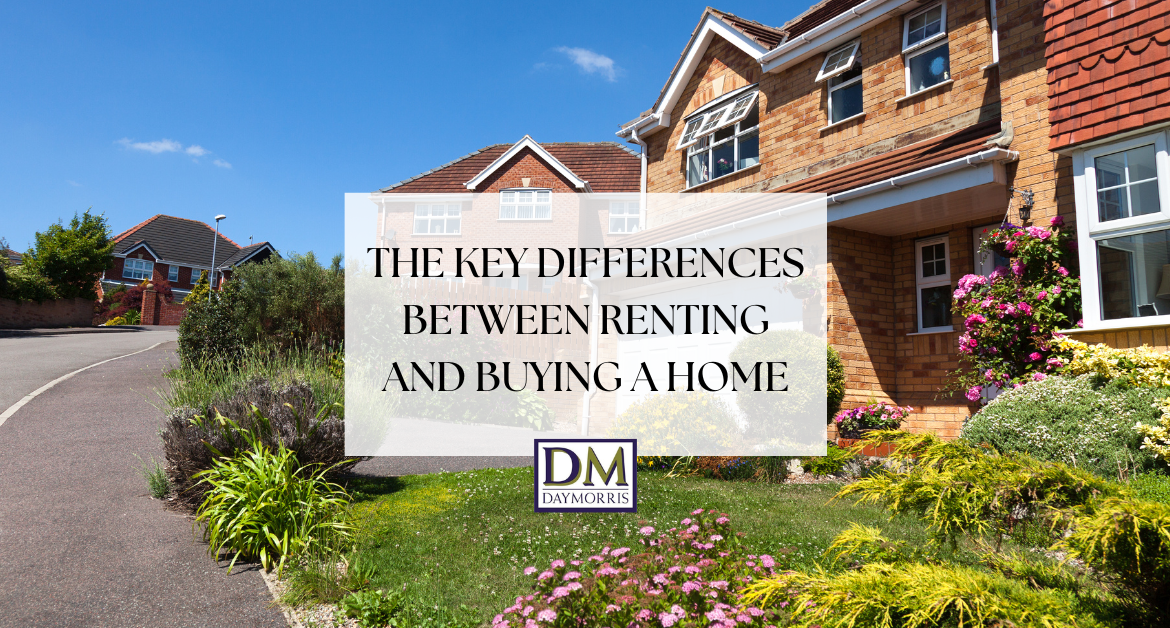When it comes to deciding whether to rent or buy a home, it’s important to understand the fundamental differences between the two. Each option has its pros and cons, and the right choice depends on individual circumstances, financial status, and long-term goals. In this blog, we’ll explore the key distinctions between renting and buying, helping you make an informed decision.
1. Financial Commitment
Renting: Renting a home typically requires less upfront financial commitment than buying. Renters usually pay a security deposit along with the first month’s rent. This deposit is often refundable, conditional on the property being left in good condition upon moving out.
Buying: Buying a home requires a substantial upfront payment, including the down payment, which typically ranges from 5% to 20% of the property’s purchase price. In addition to the down payment, homebuyers also face closing costs, which can include taxes, lender fees, and other charges.
2. Monthly Payments
Renting: Rent payments are generally fixed for the duration of the lease agreement and are paid to the landlord. Rent might increase with lease renewals, but such increases are usually predictable and stipulated by the lease terms.
Buying: Monthly payments for a mortgage depend on the loan amount, interest rate, and the mortgage term. Unlike rent, a portion of each mortgage payment goes towards the principal balance, building equity in the home. However, these payments also include interest, property taxes, and possibly homeowners’ association (HOA) fees, which can increase over time.
3. Maintenance and Upkeep
Renting: Maintenance responsibilities for renters are typically minimal. The landlord is responsible for major repairs and general upkeep of the property. Renters may be responsible for minor repairs or maintenance as agreed upon in the lease.
Buying: Homeowners are responsible for all maintenance, repairs, and renovations. While this can be costly, it also means homeowners have control over the changes made to the property.
4. Flexibility vs. Stability
Renting: Renting offers more flexibility. Leases tend to last for 12 months, giving renters the option to move with relatively short notice. This can be ideal for those who are not ready to settle in one place or whose job requires frequent relocation.
Buying: Buying a home is a long-term commitment that offers greater stability (assuming mortgage payments are met). Homeownership means you can stay in one place for as long as you like, without worrying about lease expirations or rent increases. However, selling a home can be complex and time-consuming, which might be a disadvantage for those needing to move quickly.
5. Investment and Equity
Renting: Rent payments provide a place to live but do not contribute towards any equity or investment. The money paid in rent is a cost for housing that you won’t get back.
Buying: Every mortgage payment made is an investment in your future. Part of each payment goes towards reducing the principal of your loan, thereby increasing your home equity. Additionally, homes can appreciate in value over time, potentially yielding a significant return when selling the property.
6. Tax Implications
Renting: In most cases, renters cannot deduct their rent payments from their taxes. However, they also don’t need to pay property taxes directly.
Buying: Homeowners can benefit from various tax deductions, such as mortgage interest and property taxes. These deductions can significantly lower the overall cost of homeownership.
Conclusion
The decision to rent or buy a home involves weighing the immediate and long-term financial implications, your need for stability versus flexibility, and your willingness to handle maintenance tasks. While renting might be more suitable for those valuing flexibility and minimal responsibility, buying a home could appeal to those looking for a long-term investment and a stable living situation. Whichever path you choose, make sure it aligns with both your financial situation and lifestyle preferences.
In need of expert advice? Contact us here.









